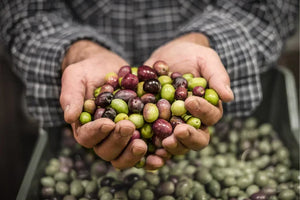Why Is the Best Extra Virgin Olive Oil “Expensive”
When it comes to sourcing the best extra virgin olive oil, I know that the prices can sometimes raise eyebrows and...
What is the most popular type of olive oil I sell? The answer suprised me
In countries that don't produce olive oil people tend to favour the lighter, more delicate olive oil varieties and I...
Why is Olive Oil so Good for You?
Studies show that the consumption of just 2 tablespoons extra virgin olive oil a day is enough to dramatically impact...
Choosing and Using Extra Virgin Olive Oil
Tasting Like any good wine or cheese, a well-made extra virgin olive oil has its own distinct terroir, taste and...
Why I write about food
As always, I'll be cooking with what's around and in season and most recipes will be simple with as little faff as possible.










